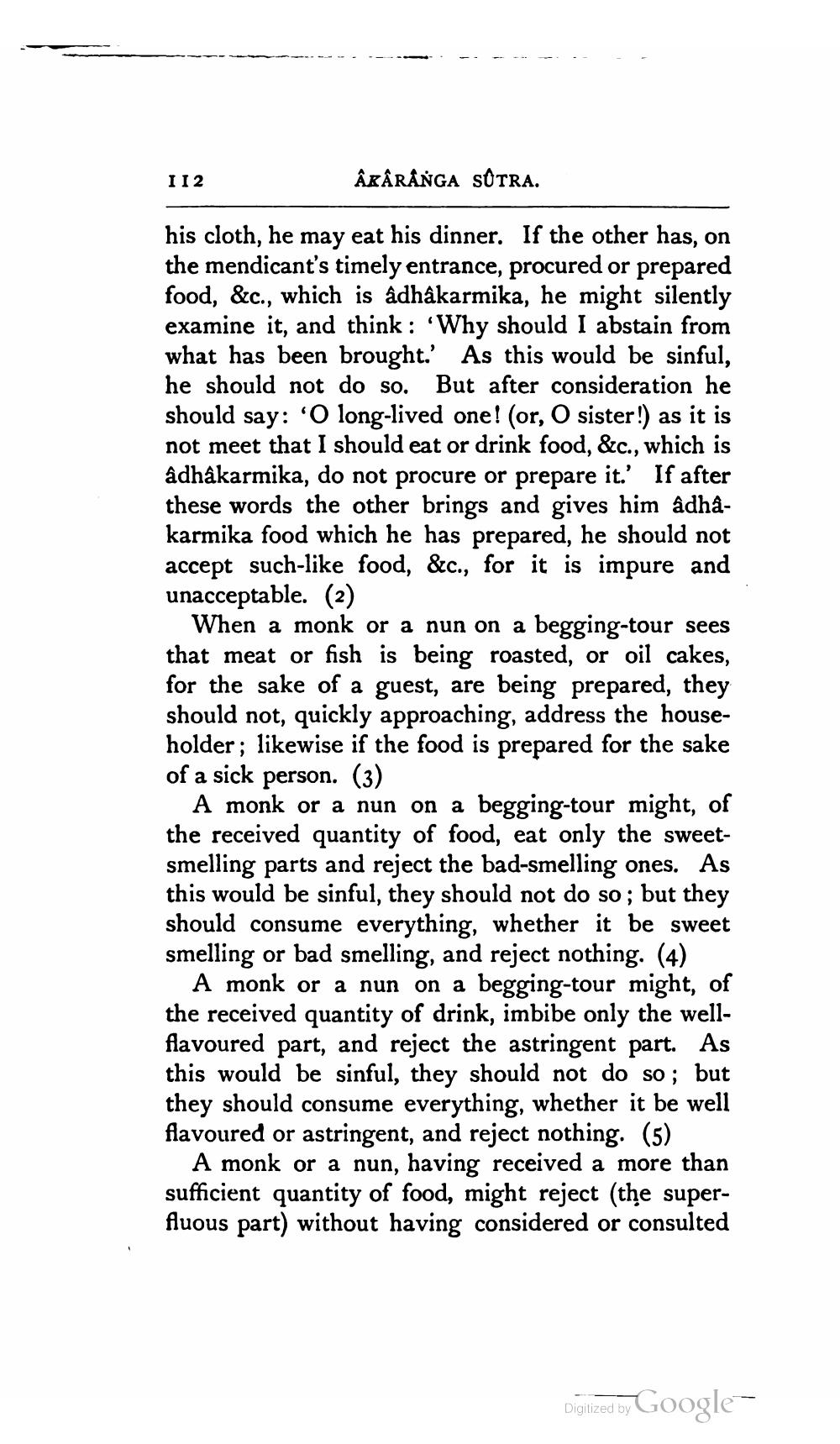________________
II2
ÂKÂRÂNGA SOTRA.
his cloth, he may eat his dinner. If the other has, on the mendicant's timely entrance, procured or prepared food, &c., which is âdhâkarmika, he might silently examine it, and think: 'Why should I abstain from what has been brought. As this would be sinful, he should not do so. But after consideration he should say: 'O long-lived one! (or, O sister!) as it is not meet that I should eat or drink food, &c., which is adhâkarmika, do not procure or prepare it.' If after these words the other brings and gives him âdhàkarmika food which he has prepared, he should not accept such-like food, &c., for it is impure and unacceptable. (2)
When a monk or a nun on a begging-tour sees that meat or fish is being roasted, or oil cakes, for the sake of a guest, are being prepared, they should not, quickly approaching, address the householder; likewise if the food is prepared for the sake of a sick person. (3)
A monk or a nun on a begging-tour might, of the received quantity of food, eat only the sweetsmelling parts and reject the bad-smelling ones. As this would be sinful, they should not do so; but they should consume everything, whether it be sweet smelling or bad smelling, and reject nothing. (4)
A monk or a nun on a begging-tour might, of the received quantity of drink, imbibe only the wellflavoured part, and reject the astringent part. As this would be sinful, they should not do so; but they should consume everything, whether it be well flavoured or astringent, and reject nothing. (5)
A monk or a nun, having received a more than sufficient quantity of food, might reject (the superAuous part) without having considered or consulted
Digitized by
Dişlized by Google




